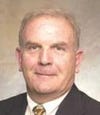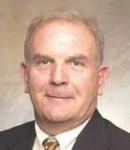May 21, 2009

I’ve written several stories and columns over the past few years about the ongoing controversy between the U.S. Navy and rural groups in two North Carolina counties who have banded together to oppose the government taking farmland to build a facility to simulate nighttime carrier landings for Navy pilots flying F18 Super Hornet aircraft.
Thanks to a series of communications with Navy Officer Ted Brown I’ve come to better understand the Navy’s position — they don’t like the controversy either, but have a commitment to make flying and landing multi-million dollar planes safer for the men and women who fly these aircraft.
From the Navy’s perspective Brown, who is a communication officer with Navy Fleet Command, says, "Most activities currently occurring in the area around the sites under consideration (either timber or agriculture) will be able to continue, and continue under current ownership, as these are two of the most compatible land-uses around an airfield.
“While we understand many people in the region have concerns about this issue, it is important for everyone to understand the Navy has a genuine and urgent requirement for an additional outlying landing field to support carrier aircraft based at and transient to NAS Oceana and Naval Station Norfolk.
“Although the Navy recognizes there is opposition to this project in the vicinity of each of the five sites under consideration, we are actively working with elected officials at the state and federal level, as well as other stakeholders, to identify potential ways to reduce negative impacts and even make the OLF a net positive economically to the community," Brown concludes.
As a voice for farmers from California to the Carolinas, Farm Press has an obligation to keep farmers informed. Hopefully, in some small way we’ve done that with the information we’ve published about the proposed OLF sites.
I don’t know what the solution will be concerning where to build the OLF, but I do know training pilots to land an aircraft in the dark on a small piece of metal in the middle of the ocean is needed. I know this much more poignantly after sitting at lunch a few weeks back with Marine Captain and F18 Super Hornet pilot Clint Harris.
Clint Harris is one of the flying military’s chosen few — a Blue Angels pilot. With three combat missions on his resume, he has seen the gritty and less-glamorous side of Navy flying, too. Being a Blue Angels pilot is a life-long dream he says, adding, so is farming.
Captain Harris was taking time off from his Marine Corps duties to attend a Cotton Incorporated meeting with his father, David Harris, who is a cotton and grain farmer near Senath, Mo..
This was not a just a social outing with his father. Understand Captain Harris is a pilot in the U.S. Marine Corp, but he also is a partner in his family’s farming operation. Once his military obligation if fulfilled he plans to return to Senath, Mo., and be a full time farmer.
Captain Harris has flown combat missions in Iraq and Afghanistan, most recently based on a carrier in the Arabian Sea. When a call for help comes in from allied troops, he says the maximum arrival time of an F18 is four minutes. Four minutes is a long time, he adds, when someone is shooting at you.
Mid-air fueling is challenging he says, putting the right explosive ordinance in the right place at the right time to help embattled soldiers is challenging, but nothing comes close to the challenge of landing his F18 Super Hornet on a dark night in the middle of the ocean on a moving metal landing strip on a carrier deck.
“You never get comfortable landing on a carrier in the day time — it’s something you are trained to do and you do it without a lot of stress. Landing at night is a whole different challenge — everything has to be just right, and you never have any degree of comfort until your aircraft stops and you climb down from the cockpit,” he explains.
Captain Harris is a little different from most F18 pilots. He learned to drive a tractor before he learned to drive a car. Growing up and flying around the farm with his father, he also learned to fly a plane before he learned to drive a car.
Growing up on his family farm, located about 100 miles north and a little west of Memphis, Tenn., is filled with wonderful memories. The work ethic he learned on the farm and steadfast support of his family has been invaluable to him in his military career, he says.
It’s safe to say Captain Harris loves flying and he loves farming. He didn’t know much about the ongoing battle between the Navy and farmers and landowners in North Carolina and Virginia who oppose the OLF site.
Those are traditionally some of the most patriotic people in our country, he said. I told him that no one I had talked to, including the Navy, thinks the many people who oppose the training facility are opposed to the Navy or any military operation.
Likewise, no one, farmers or Navy personnel who I’ve talked to questions the need for a facility to better train pilots to land on a blacked out carrier in the middle of the ocean.
I asked Captain Harris what he thought a win/win solution would be.
From his farming perspective he noted it is becoming increasingly important to keep productive land in farming. From his pilot’s perspective he says there is a dire need for better training facilities to simulate nighttime carrier landings.
Captain Harris and I didn’t solve the Carolina-Virginia OLF controversy during lunch at the Cotton Incorporated meeting in Raleigh, but we did agree on one obvious solution that would likely make building the training facility happen more quickly and more economically — take politics out of the equation.
With billions of dollars at stake concerning where the F18 squadrons are based, it’s not likely politics and politicians will ever step aside and let the U.S. Navy and rural landowners along the East Coast, from southern Virginia to the South Carolina-Georgia border figure out the best place to put the OLF.
To put the best of the best that the United States military has, like farmer-Blue Angel pilot Clint Harris, at risk because politicians can’t make dollars and cents out of what should be just plain ole’ common sense should not be acceptable at any level.
e-mail: [email protected]
About the Author(s)
You May Also Like






